We’re told over and over again to drink lots of water when it’s hot outside or while we’re exercising. However, drinking an extreme amount of water in a short time can be dangerous. Water intoxication, or water poisoning, is a potentially fatal condition that occurs when you consume too much water too quickly without replenishing your electrolyte intake. Drinking a lot of water in a short amount of time causes the levels of salt in the blood to drop too low, a condition called hyponatremia.
When the normal balance of these electrolytes is pushed outside safe limits by overhydrating it causes a disturbance in brain functions. According to a YouTube video published by the American Chemistry Society, it only takes about 6 liters of water to kill a 165-pound person.
Drinking a bottle of water here and there in the heat or during exercise won’t hurt you, but drinking too much too fast can. 6 liters might not sound like a lot, but there is no reason to consume that much water and your body shouldn’t be telling you that you’re thirsty enough to drink that much. Water is essential to human life.
Almost all of the major body systems depend on water to work properly. Water helps your body regulate temperature, prevents constipation, and flushes waste from the body, among other functions. Everyone should make sure they drink an adequate amount of water throughout the day and increase their water intake when it’s hot outside or while exercising.
However, certain high-risk groups of people also need to be wary of water intoxication under the same conditions, especially endurance runners, anyone with a chronic illness or psychological condition, and those who work outside in the heat.
How Does Water Intoxication Happen?
The cause of water intoxication basically boils down to sodium levels. The role of sodium in the body is to balance the fluids in and around cells.
When you drink too much water it causes an imbalance, diluting sodium levels in the body and leading liquid to move from the blood to inside cells, which causes swelling. If this results in swelling of the brain it becomes a very serious condition that requires immediate treatment.
So how much water would you have to drink to become intoxicated? Gallons and gallons. The kidneys can only expel about half a liter of liquid per hour. Water intoxication occurs when you’re drinking more than your kidneys can pee out. You can read our article on how long water is digested by our bodies for more insight.
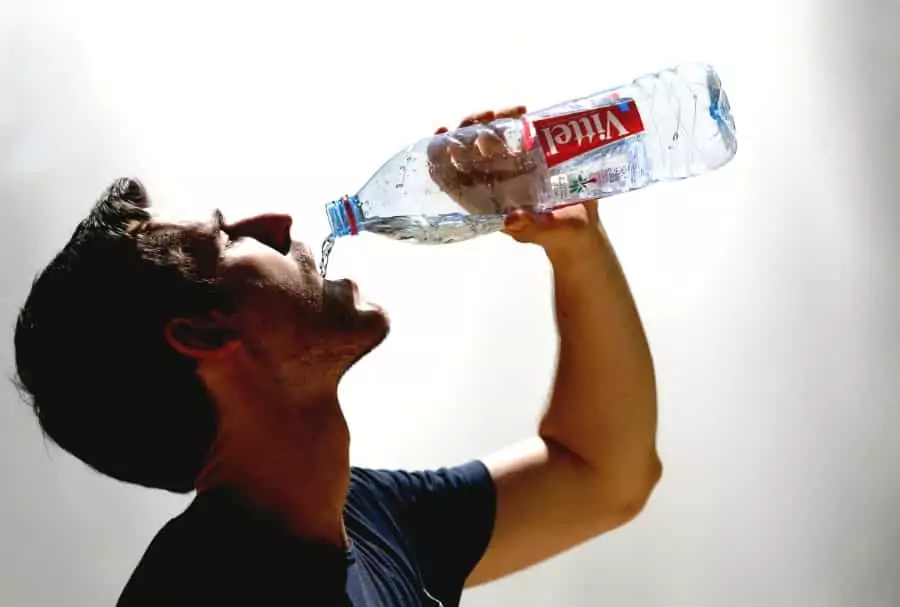
Dehydration is much more common, and the symptoms are very similar, so it can be difficult to diagnose water intoxication unless you know the person exhibiting symptoms drank 6 liters of water. Young, healthy people are usually not at risk, but there are certain groups of people who have higher risk factors they should be aware of. Check out our piece on how to stay dehydrated to keep yourself safe.
The same groups of people who are at risk for water intoxication should also be wary of the symptoms of dehydration and heat exhaustion. Symptoms of all three conditions present similarly and can be difficult to diagnose.
Both dehydration and heat exhaustion can cause weakness, dizziness, confusion, a racing heart, fainting, headache, fatigue, muscle cramping, nausea, vomiting, or diarrhea. As you’ll see later, these are all symptoms of water intoxication as well.
Paramedics know to look for signs that differentiate between water intoxication and dehydration, but everyone should learn what differences to look out for and how to prevent it from happening to them.
There are two types of overhydration:
- Increased water intake leading to drinking more than the kidneys can get rid of results in overhydrating.
- Retaining water. When the body is unable to get rid of excess water, it starts retaining water that it doesn’t need. People with chronic illnesses like liver disease, kidney problems, and congestive heart failure are more prone to retaining water.
People at Risk
- Endurance Sports: People who are involved in endurance sports, like distance runners, can drink too much water trying to rehydrate the liquids they’ve sweated out. Paramedics know to watch out for water intoxication symptoms at races, but endurance sportsmen should be aware of what symptoms to watch out for on their own.
Drinking sports drinks in addition to water can help replenish sodium and other electrolyte levels in the body to help prevent water intoxication, but you should still only drink a moderate amount. - Overexertion or Heat Stress: Anyone who works in extreme heat or is prone to heat exhaustion should be cautious of water intoxication. Heavy sweating usually leads to consuming large amounts of water in order to replace lost fluids which can result in an electrolyte imbalance.
Anyone who works outside in extreme heat should take frequent breaks in the shade to sip water and allow their body temperature to regulate. - People being treated for Chronic Illness: Certain medications for conditions like anxiety, depression, diarrhea, colds, or asthma can cause dry mouth, making you constantly thirsty and leading to the over drinking.
This puts older adults at higher risk of water intoxication because they are more likely to be taking medications that alter the body’s sodium balance. Anyone taking medication for a chronic illness should keep careful track of how much water they are drinking per hour to avoid overhydrating. - Heart, Kidney, and Liver Problems: Diseases affecting the heart (like congestive heart failure, or CHF), kidneys, or liver can cause fluid accumulation in the body which dilutes sodium levels and leads to swelling of the cells.
Medications for these conditions can also increase your likelihood of becoming water intoxicated. - Anyone with Psychological Conditions: People with psychological conditions like schizophrenia are predisposed to over consumption of water caused by their condition and as a side effect of several medications. Water consumption for this risk group should be carefully monitored to make sure they are not drinking more than 8 ounces of water per hour during rest periods.
- Severe Vomiting or Diarrhea: When your body is dispelling liquids in high amounts through vomiting or diarrhea it causes your body to lose electrolytes like sodium. It is important to rehydrate your body when you are losing fluids, but be careful not to drink water too quickly or water intoxication can set in.
- Drugs or Alcohol: Certain drugs like ecstasy can cause dry mouth and lead to drinking too much water while under the influence. Beer can also lead to water intoxication if you are drinking extreme amounts.
Be aware of the symptoms of dehydration if you drink other types of hard alcohol frequently.
Symptoms of Water Intoxication
- Feeling hot
- Headache
- Feeling crummy in general
- Diarrhea
- Nausea
- Vomiting
- Clear urine
- Confusion or disorientation
- Difficulty breathing
- Fatigue
- Dry or sweaty skin
- Double vision
- High blood pressure
- Swelling of toes, fingers, ankles
- Short term significant weight gain
- Muscle weakness, spasms, or cramps
- Seizures
- Slurred speech
- Unconsciousness
- Coma
First Aid and Treatment for Water Intoxication
If you see someone showing signs of water intoxication, you should pull them aside into the shade and talk to them. Get help quickly before water intoxication leads to swelling of the brain, seizures, or coma.
Call an ambulance or get the person to the Emergency Room as quickly as possible so that doctors can inject a concentrated salt water solution to ease swelling and start reversing the water intoxication. Doctors can also prescribe diuretics to help increase urine production and help the body get rid of excess water.
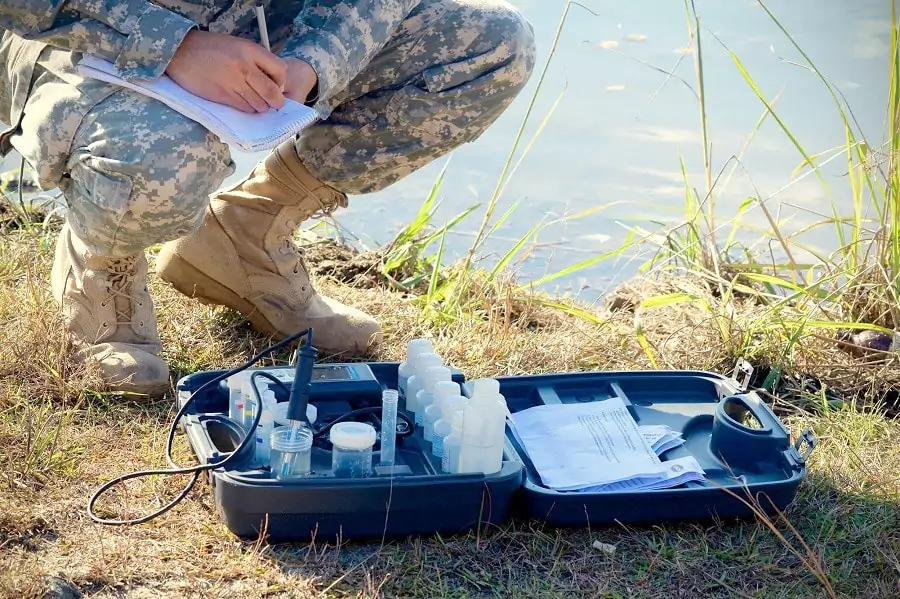
Medical intervention for water intoxication can also lead to the treatment of underlying conditions that make a person prone to overdrinking.
While you are waiting for medical help you can ease the symptoms of water intoxication by cutting back on fluid intake and increasing salt intake. Don’t give a person showing signs of water intoxication any medications, even if they are experiencing headache and nausea.
Simple over the counter medications like aspirin and ibuprofen can worsen symptoms. Provide them with oral rehydration salts only if you have them on hand. If you are prone to water intoxication, know your medical history and consult with your doctor regularly to understand what you can do to prevent water intoxication caused by an underlying condition.
For Outdoorsmen
Your first aid kit should always have you prepared for the worst. Plan your water drinking ahead by making yourself familiar with the area you’ll be trekking beforehand. Be aware of the possible water sources and stops, as well as shady areas you can rest to regulate your body temperature.
This will ensure you don’t go too long without water or drink too much water because you went too long without taking a water break. Carry trail food to help your body keep a healthy balance of sugar and sodium.
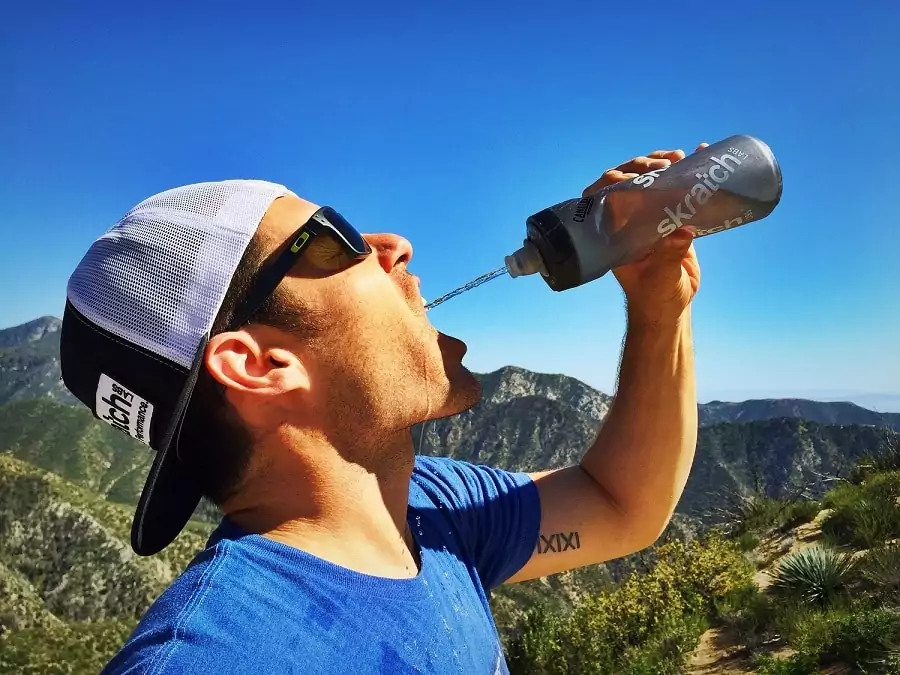
A good trail mix contains nuts, chocolate, and beans for providing small energy bursts while you are hiking. Always check the weather before you head out on a trek. Weather can be unpredictable and you want to be prepared for any extreme conditions.
And always carry rehydration salts in your first aid kit to help with dehydration and replenish electrolytes if you drink too much water in extreme heat or while trekking long distances.
Preventing Water Intoxication
The best way to prevent water intoxication is to make sure you don’t drink way more than you sweat out, but that’s a difficult metric to measure. To stay on the safe side, avoid drinking more than 1 liter of water or sports drink per hour, even if you are outside in the heat for an extended period of time or during intense exercise and endurance sports.
Simply drink until you don’t feel thirsty then stop, even if you think you need to continue replenishing your body.
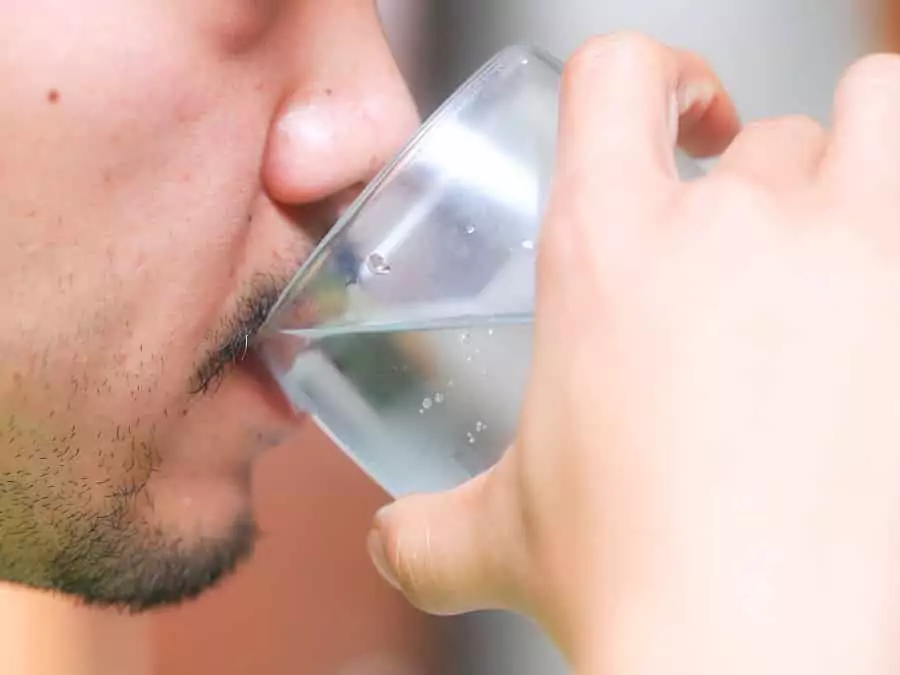
You can also keep track of your water consumption by monitoring your pee. Dark yellow urine means that you are dehydrated and should drink water. Clear urine means you are hydrated and should slow down drinking water to prevent intoxication.
Drink sports drinks when you know you’ll be working hard to help your body replenish electrolyte and sodium levels, but still be careful not to drink too much of any liquid.
So How Much Water is the Right Amount?
We know we should be drinking enough water throughout the day to keep us from getting dehydrated, especially when it’s hot outside or when our activity level is high. But we also have to be careful in these circumstances not to drink too much water or we could become water intoxicated.
So how are we supposed to know how much water to drink to keep each of these opposite scenarios from happening?
The symptoms of water intoxication are scary and can be life threatening. If you’ve been drinking extreme amounts of water and start to feel nauseous and disoriented, those are some of the first warning signs that you might be experiencing water intoxication.
Let someone know and seek medical attention. Follow proper first aid protocol for water intoxication until paramedics arrive. Likewise, if you suspect someone might be experiencing symptoms of water intoxication, seek medical help for them and make sure they stop drinking water immediately.
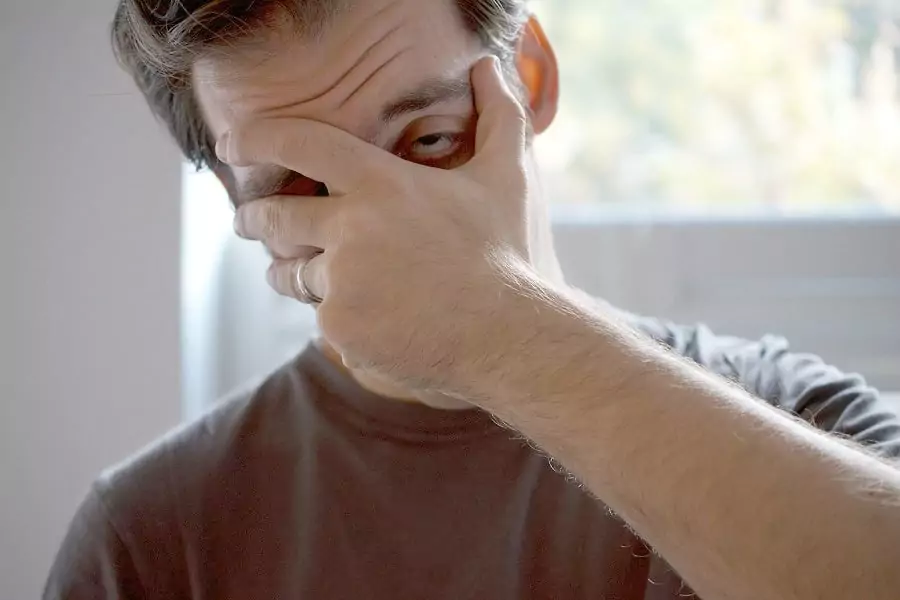
There is no magic number for exactly how much water everyone should drink. It depends on a number of factors like your size, workout, activity level, and what you’re eating. As a general rule, you can divide your ideal body weight in half and drink that many ounces of water per day or drink 8 glasses of 8 ounces per day.
The best thing to do is to sip water and avoid drinking more than 4-6 ounces every 20-30 minutes during intense exercise. During periods of rest throughout your normal day there is no reason to drink more than 6-8 ounces of water every hour. Listen to your body’s needs and wants; it will tell you what to do.
See our previous article on water poisoning and how to prevent it for more information regarding this all-important topic.
We hope that you found our article useful and that it will help you if needed. If you feel like sharing some of your thoughts about water poisoning with us and our readers, feel free to leave a comment in the comments section below.

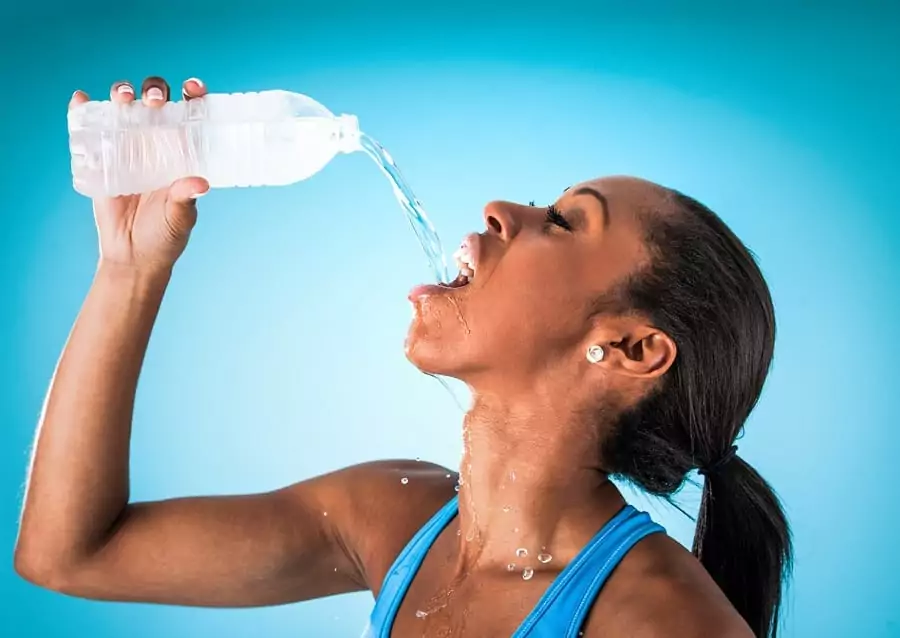






Great article for runners and campers who usually need to hydrate . Being a runner myself, I have found this article very useful and I’d surely follow the suggestions mentioned to avoid dehydration and health problems that occur because of dehydration.
It’s very important to know about proper hydration during exercise and how beneficial it is for avoiding diseases. Actually, I had no idea that you can overdo it so this article opened my eyes to some unwanted risks. Great Job!
Most people are unaware of water intoxication so the more people know about this, the better. Make sure you know the symptoms but then again, prevention is key. So be aware of how much you drink and monitor your water intake throughout the day.
Thanks Joseph! I hope you can share this blog post to your friends and family to warn them of the danger of water intoxication. Most are aware of dehydration and its effects, but not with water intoxication. The more people who are aware of the danger, the better!
I do not think many people know that there is a danger in over-hydration. I for one didn’t until I read this article. It is really important to know the right way to drink our water so we do not end up victims of water intoxication. Thank you for sharing.
Hi Paul and thanks for dropping by with your comments. Most people are not aware of water intoxication – just dehydration and that’s quite alarming! I hope this article will be shared by a lot of people so they will be more informed and safe.